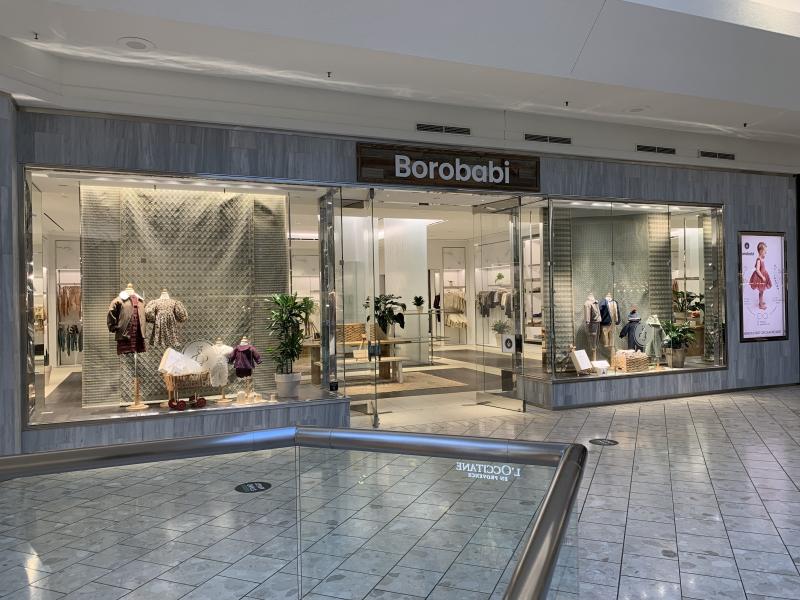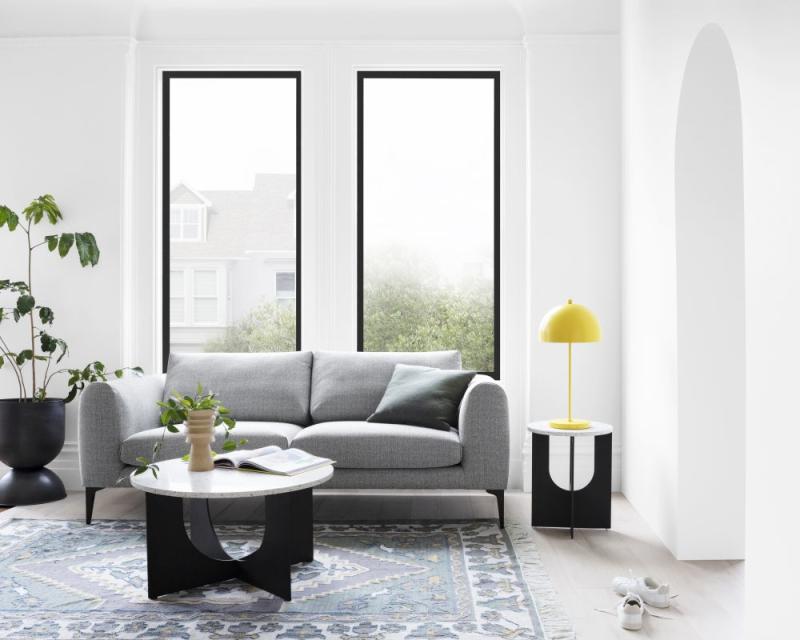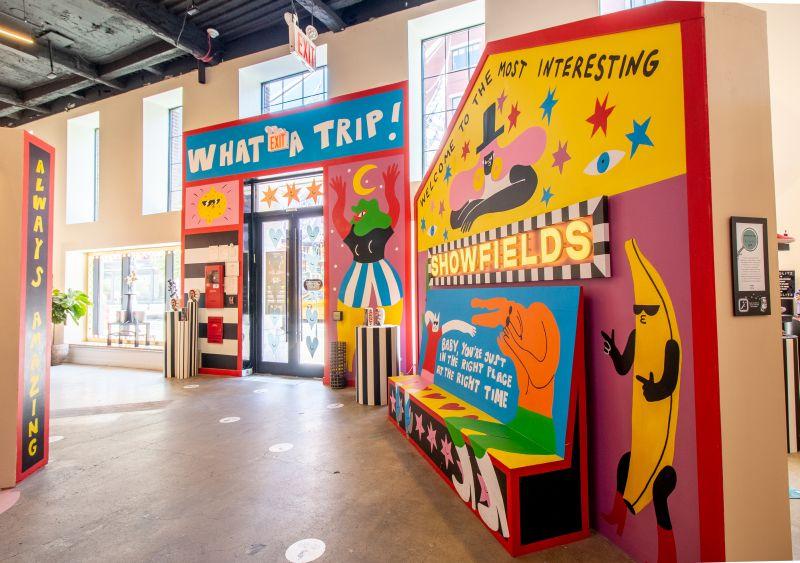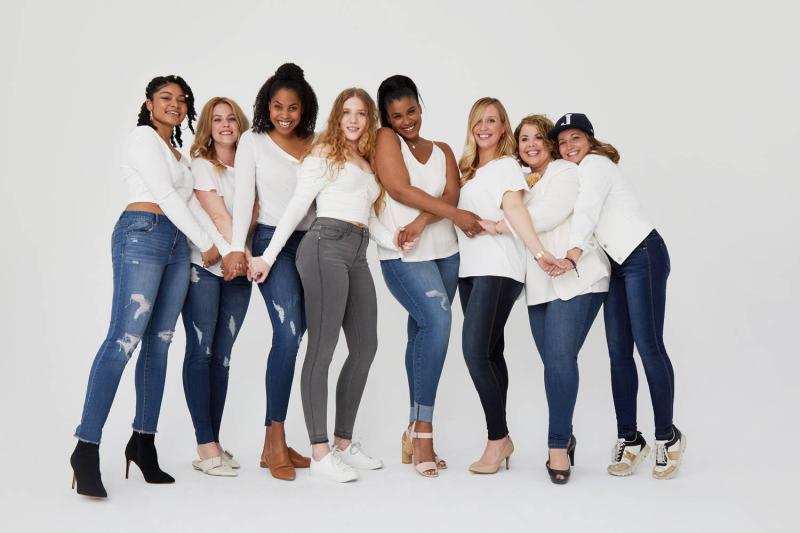The Hot Retail Startups in 2022
As established retailers carry on navigating challenges of spiking e-commerce sales, supply chain disruption, and the ongoing pandemic, retail startups continue to carve their own path.
Harnessing technology to communicate with shoppers from day one, many retail startups have the advantage of finding their way in the new retail landscape from the beginning. And investors are taking notice. Crunchbase took a look at U.S. Series B investment across a range of sectors and noted that shopping/e-commerce was up to $3.7 billion for 2021 YTD, compared to $1.4 billion in 2020.
RIS’ fourth annual look at retail startups examines the retailers that caught the eye of our editors for being exceptionally innovative and inspiring consumers. Past retail startups RIS spotlighted have gone on to grow their consumers’ loyalty and some have landed on CB Insights’ list of all the unicorn companies (private companies worth $1 billion) worldwide. One of the Hot Retail Startups in 2021, athleisure retailer Vuori, announced an investment by Softbank of $400 million at a valuation of $4 billion this past October, marking one of the largest investments in a private apparel company.
For this feature RIS only considered retailers that were seven years old or younger. Here we highlight how these retail trendsetters are making an impact on the industry through their distinctive business models and/or original use of technology.
Below is a look at the retail startups that are making their mark on the retail industry and disrupting their respective segments. Click here to recall last year's "Hot Retail Startups."
Borobabi
Borobabi isn’t your typical children’s clothing retailer. Founded by Carolyn Butler soon after her daughter Avellina was born, the public benefit corporation aims to create a sustainable circular model which responsibly sources, upcycles and composts its products.
Butler tells RIS she founded the company while wading through piles of her newborn’s outgrown clothing. “Most clothing in the U.S., even when donated, goes to landfill – and I knew that with my engineering background, I could create a new circular model that takes a more scientific, fiber-level approach to fashion,” says Butler.
As a Columbia EMBA Alum, Butler applied the idea of Borobabi to Columbia’s Startup Lab in Soho and was accepted. She spent the first half of 2020 doing market research, building out a sound financial model, and beta-testing. The circular retail solution reduces the environmental impact of fashion by fulfilling three pillars of the circular economy: Borobabi uses natural materials, keeps products in use by rewarding their return, and eliminates waste to landfill by owning the process of composting or recycling all its products to regenerate new materials again.
Borobabi Spotlight
Headquarters: Ridgewood, NJ
Total funding: Over $2 million
Employees: 9
Retail stores: 5, including two NYC pop-ups
Target customers: Families with children under the age of 6
Sustainability factor: To date, high level impact has been 140 Tons of CO2-E Savings, 7 Tons of Virgin Cotton Savings, and 0.1 Tons of textile waste diverted from landfill.
Borobabi’s e-commerce platform launched in June of 2020 and the retailer opened three brick and mortar stores at the end of 2021.
“Due to the pandemic, our first year of growth was exclusively online, where we leveraged word of mouth, social media and original content to increase brand awareness,” she says. “Once quarantine restrictions lifted we were able to test and expand on our in person discovery experience.”
Launching digitally gave the brand an advantage, however. The startup’s community centers around the interactions it shares with families on social media and through its blog In The Loop. Followers get updates on new fashion arrivals, partner brands, and fellow female-run and conscious businesses, plus they get the chance to meet each other. “Social media was crucial during the pandemic because it was our only real conduit to connect with moms — and we had a lot of fun creating original content and telling our story on TikTok, podcasts, panels, and Instagram stories,” explains Butler.
It also provided Borobabi with a significant amount of data. “Technology is a huge part of how Borobabi works, and we leverage our differentiated tech in multiple ways,” says Butler. “Our backend is similar to blockchain technology, where we track historical ownership of each unique item in our inventory. These tracking capabilities give us insight into garment’s durability, style demand and lifecycle. This feedback loop of data on our ‘pre-loved’ clothing is shared with our vendors — and it's data they’ve never had the opportunity to see before — so now we work together to improve product quality. Tracking each item also gives better demand visibility, and it makes sorting and accounting for recycled and composted garments much easier.
On the consumer front, this data is also key to building our own unique community based on human connectivity, which we will introduce in 2022."
Feather
Feather is redefining furniture rental for a new generation of renters. Founded in 2017 by Jay Reno, Feather’s circular model keeps more furniture in homes and offices and out of landfills, creating a pattern of responsible reuse.
Customers browse the website and choose from 200-plus pieces of furniture, art and rugs, then choose a term length option that works for them or explore Feather’s rent-to-own or buy-now options. A white glove service delivers an even assembles all the furniture for them.
“Feather furniture is designed to work for our unique system of refurbishment and reuse,” president and COO Ilyse Kaplan tells RIS. “This means we selected durable materials, developed a component part system for repairs and partnered with manufacturing teams who share our values to create furniture that’s truly built to last.”
Feather has also developed proprietary technology that powers the way its customers interact with the brand and the way it’s able to fulfill orders accurately and in a timely manner. The retailer also harnesses the power of social media to build community.
Feather Spotlight
Headquarters: New York, NY
Total funding: $46M
Employees: 100-plus
Target customers: Customers tend to be people in their 20s and 30s working and renting in cities.
New customers: Feather for Staging has seen immediate traction among real estate professionals.
Growth: Feather saw a 400% increase in demand for home office items over the past year, as well as 260% increase in demand for cozy items— i.e., sofas, chairs and beds.
Notable partnership: Partners with Pachama to offset carbon footprint of domestic emissions by supporting reforestation efforts in areas that produce FSC certified wood.
“At Feather, we view social media as a direct line of communication to consumers,” says Kaplan. “We strive to build a community on our channels that will lead to increased brand awareness and word-of-mouth interest in our target markets, and we’ve found that much of our customer base has discovered us through mobile devices. On Instagram, we primarily engage with Feather fans and potential customers to share information about new products, company updates and promotions, as well as provide educational content and design inspiration. Ultimately, our mission is to help people feel at home wherever they are — and through our social media, we lead new customers to choose a smarter and more responsible way to furnish their spaces.”
Since launching, the retailer has been busy finding new ways to do just this. Last year, Feather expanded its private line of furniture designed for its circular business model. This year, it entered an exclusive partnership with WeWork to furnish members’ offices in 35 major markets around the country; expanded into Texas, the greater D.C. area and further into New York, New Jersey and Connecticut; launched a new outdoor furniture category; and introduced a new one-month term length offering for home staging professionals.
“As Feather continues to deliver on the promise of furniture flexibility and convenience in all kinds of spaces, our major steps forward are raising the bar for what customers and businesses can expect from modern furniture rental companies,” says Kaplan.
Liteboxer
As the retail industry buzzes about virtual reality (VR) and the metaverse, at-home fitness retailer Liteboxer is one new company to keep an eye on. Its modern workout experience merges connected fitness and gaming through beat-based music programming. Liteboxer’s patented hardware, game dynamics, hit music, and expert training already create an immersive workout, but the retailer is taking it one step further into the future with its upcoming VR fitness experience.
Liteboxer’s maiden VR fitness experience is expected to be available March 2022 on Meta Quest 2, featuring real in-app expert trainers with new workouts daily. Liteboxer VR will also offer motivation-based competition and an extensive music library in partnership with Universal Music Group, bringing music that ranges from Lady Gaga to YG into the virtual ring.
“We are the first connected fitness company to develop a fitness experience for the MetaVerse,” Liteboxer co-founder and CEO Jeff Morin tells RIS. “We've partnered directly with Meta to create the platform. In March, Liteboxer will launch a VR experience, which is only available via the Oculus store.”
LITEBOXER SPOTLIGHT
Headquarters: Boston, MA
First Product Launch: 2020
Total Funding: $28.5M
Employees: 25
Target customers: 25-35, Female/Male, HHI $75k+, College Educated
Locations to buy: liteboxer.com; also sold in Dick's Sporting Goods and Showfields in Miami and NY.
Making health accessible is a major initiative for Liteboxer. Liteboxer workouts, led by world-renowned trainers including Anthony Crouchelli, are available on-demand through the Liteboxer App. Users can choose from dozens of different sparring exercises, along with functional strength training and recovery workouts, including yoga, to complement their training regime. Community members can also select Punch Tracks, where music automatically syncs with the workout to create a unique fitness experience.
“Liteboxer is tackling a new demographic of users,” says Morin. “The video game industry has been surging in the past few years and has recently surpassed the movie industry. Liteboxer taps into this momentum by fusing entertainment and competition into a fitness experience. It's e-sports 2.0, just without the sweaty controller.”
Liteboxer units come in two designs, based on the customer’s needs. Wall Mount is for those that have limited floor space and live in a home with hard brick/concrete walls or wood stud walls. The Floor Stand version is for those that have a dedicated space or shared walls.
"For all of the innovation in at-home fitness over the years, working out still sucks for most people," Morin noted last year when the company announced it had raised $20 million in Series A Funding. "We set out to create a workout experience that's so immersive, people forget they're even exercising.”
Showfields
Showfields, founded in 2018, dubs itself “the ultimate curator,” bringing together the most mission-driven, design-oriented, innovative and unconventional brands, artists
and communities from around the globe.
“The traditional retail model is based on the questions of ‘What’s going to sell’ and combining this with the goal of reducing risk,” Showfields' CEO Tal Zvi Nathanel tells RIS. “The result is that over time, the customer is forced into a position where they can only see ‘known’ or ‘familiar’ brands/products. In contrast, at Showfields we wanted to ask a different question — ‘What is interesting? What is new? What is innovative? What is pushing the envelope?’”
To do that, Showfields lowered the barriers to retail entry by unlocking the physical to all creators, which meant shifting all the lift and risk to Showfields. Additionally, the retailer flipped the business model and instead of getting revenue from brand sales, it allows brands to run affordable and flexible six-month campaigns with a fixed price, while allowing them to collect all the sales, data and insights.
Showfields Spotlight
Headquarters: New York, NY
Opened: 2019
Retail stores: New York City, Miami, Westfield Century City/LA
Target customers: Creator community who appreciate well made, design centric products that have purpose.
Notable partnership: Partnered with American Express to support their Shop Small x ByBlack platform, which included curating 30 black-owned businesses.
“By doing so, we can now curate these brands through the Showfields lens ensuring all our products are inspiring, well-made, artistic and mission-driven,” Nathanel says. “It is through this process that we can serve up what we refer to as ‘the most interesting’ brands from around the world and trigger wonder and inspiration for all who cross through the threshold of our front door.”
Showfields sets itself apart from the rest of retail in another way as well: technology. Its Merchant Console is a proprietary tool that allows for the onboarding of multiple brands simultaneously and seamlessly by syncing with their e-commerce, unlocking their retail channel with one click which includes access to a platform that displays their ROI in real time.
Additionally, Showfields’ Magic Business consumer-facing tool enhances the experience in the store while enriching Showfields’ data collection to ensure it constantly improves. An example of this is the Magic Wand — a wand that is handed to every customer who enters Showfields.
“The technology enables them to engage in a way never before possible, both in a practical way as well as an experiential one like unlocking ‘brand moments’ or triggering an interactive sampling machine to deliver samples based on customer preferences,” Nathanel explains.
Online, the retailer says it’s always evolving its marketing mix to meet the customer at the right time and right place. In addition to a social media presence, Showfields continues to evaluate storytelling via emerging technologies like augmented reality, helping it dive deeper in sharing the stories that inspire and motivate its audience.
1822 Denim
“The future of fashion and retail technology is bright,” 1822 Denim writes in its blog The Denim Diary.
The apparel retailer is harnesing retail tech to bring consumers the best-fitting denim possible, inclusive and representative of a variety of shapes and sizes. 1822 Denim offers stylish and comfortable jeans in sizes 00-24W and Maternity, as well as a variety of categories that “take into account the differences that make us individually beautiful, including curvy and petite,” it says. Founded in 2015, the retailer says its mission is to “change the conversation, set an example that we can listen to our customer’s needs and offer her what SHE wants.”
As part of its mission to help consumers purchase quality denim that fits all body types, the New York-based company partnered with 3DLOOK to refine and better leverage consumer data to increase conversions, reduce returns and improve its inventory accuracy. The company extended its two-year partnership last year to deploy 3DLOOK’s 2-in-1 YourFit technology to provide virtual try-on functionality and size recommendations.
1822 Denim Spotlight
Headquarters: New York, NY
Founded: 2015
Target customers: Women of all sizes, including pregnant women
Notable partnership: Partners with Best Friends Animal Society to help save the lives of shelter animals across America.
Sustainability factor: The Re:Denim line is crafted with Repreve premium quality fabric made from 30% recycled plastic bottles and 100% repurposed water. Additionally, Perfect Fit 3D technology provides accuracy on sizing, which greatly reduces the number of returns, reducing waste in landfills, and decreasing a trail of emissions that contributes to climate change.
Tanya Zrebiec, 1822 VP of innovation and strategy, shared details with RIS in 2021 about their experiences with the technology and integration, as well as perspective for other retailers seeking to improve their returns process (which, let’s face it, is just about everyone).
“The technology has impacted our design and fit processes,” Zrebiec told RIS. “We are taking a closer look at the body measurements and shape data of our shoppers that's being provided by 3DLOOK, which means that we are able to really understand what our actual shoppers look like, what their figures are and we apply that knowledge as we design and fit products.
“It also has changed some of our processes on our website, which is where the widget is housed. We educate the customer on how the widget works and what are the perks of using it, and we work on the UX to bring the customer to the widget to get her excited to use it to find the best-fitting jeans for her.”
Zrebiec noted the fit technology is extremely accurate, and the retailer backs it up with free returns. For returns and exchanges, a flat rate cost for return shipping of $7.99 is deducted, but this fee is waived for customers who use the company’s “Find My Unique Fit” prior to checkout.
“Enhancing the customer experience by removing friction and driving personalization through product offerings for all body shapes and innovation through 3D size recommendations allowed for a more seamless customer shopping journey giving her the tools to find the right product for her while reducing returns and reducing waste,” said Zrebiec. “As a result, we were able to reduce return rates by 48%.”
- Emerging Brands to Watch
The Woobles offers beginner amigurumi crochet kits that come with step-by-step videos, easy-to-follow patterns, and a pre-started piece. Besides being notably adorable, Fortune calls the startup an “ed-tech company” for its innovative use of video instruction. Co-founder Justine Tiu tells RIS the self-funded company started in July 2020 and hit seven figures in revenue in under a year.
The Gwen Beloti Collection, part of NRF's Big Show Diversity Equity & Inclusion Showcase, launched in 2019. The brand is sold online and in marketplaces (Wolf & Badger, Showfields, Verishop, and 1stDibs) and founder Gwen Beloti tells RIS the retailer is looking to introduce a more robust virtual shopping experience in the future by incorporating virtual try-on through augmented reality. “One of our key factors is inclusive sizing and we want to give our clients the opportunity to for instance see where a necklace may fall on them so they can order the best length,” says Beloti.
Project Hive Pet Company, a Public Benefit LLC, designs and sells innovative dog toys and treats with a mission to save the bees. Founded in 2019 and launched in 2021, the company has an agreement with 1% for the Planet where it donates 1% of gross revenues to the Bee & Butterfly Habitat Fund. It offers a line of five pet toys and five pet treats that all have the iconic beehive shape and hexagonal patterns, designed to help tie into its mission. Plus, the non-toxic, BPA-free toys are made out of thermo plastic elastomers, a very durable rubber that can be recycled and ground into new toys, and the treats are Non-GMO Project verified.
Jones Road, founded by makeup artist Bobbi Brown, launched in 2020 (Brown stepped down from Bobbi Brown Cosmetics in 2016), but the brand's first store/flagship just opened last November in Montclair, NJ, (the same town as its headquarters). Jones Road beauty products focus on "clean, strategic, high-grade formulations that work on every skin type and tone" and the retail location will also double as a "beauty think tank, an incubator for new products," according to Baristanet, so expect more to come.











